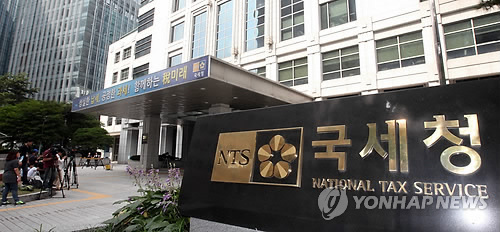Whether to increase corporate taxes is shaping up as a key issue of contention between major political parties in the new parliament that began its inaugural session Monday.
The chief policymaker of the liberal main opposition Minjoo Party of Korea last week reaffirmed the party would soon submit a tax code revision bill to raise the maximum corporate tax rate, which would be applied to companies with annual profits exceeding 50 billion won ($42.6 million), to 25 percent from the current 22 percent.

It pledged to push for a corporate tax hike during April’s general election campaign. The pledge reflected the criticism that measures taken by the previous administration under President Lee Myung-bak to cut corporate tax rates had only led to letting large profitable companies pile up huge cash reserves without increasing investment and wages.
If backed by the minor opposition People’s Party, the tax code revision bill could get parliamentary approval as the two opposition parties command a majority in the 300-seat legislature.
But officials of the splinter party have recently struck a cautious tone on the need to raise the tax rate, saying a more immediate work to do is to trim a complex set of tax benefits given to companies, in particular large ones.
The conservative ruling Saenuri Party has opposed the tax increase, echoing the views of the government and business circles that the move would result in further weakening corporate activities and hampering economic revitalization.
“Korea should not go against the global trend of lowering corporate taxes,” said a Finance Ministry official, requesting not to be named.
Contrary to the general perception, he added, the actual tax rates applied to big businesses are higher than those for smaller companies.
Levies collected from local firms in the first quarter of this year amounted to a record high of 15.8 trillion won, up 3 trillion won from the year before.
The Finance Ministry attributed the increase in corporate tax revenue amid an economic slowdown to its measures to reduce or repeal tax breaks. It may be partly so. What sounds more persuasive, however, is the argument by company officials that the unexpected surge in corporate tax collection is due largely to corporate efforts to improve profitability amid declining turnover.
Experts note political parties and the government tend to highlight data deemed to support their argument.
According to an analysis by the Finance Ministry, the actual tax rate, which is calculated by subtracting the amount of tax breaks from the nominal rate, amounts to 17.3 percent for large corporations, 16.5 percent for intermediary companies and 12.5 percent for small and medium-sized enterprises.
But data from the National Assembly Budget Office, which was cited by People’s Party leader Ahn Cheol-soo in a meeting with reporters early this month, show the actual tax rate is lower for corporations with a net profit of 500 billion won and above than those gaining less profit.
Unless based on comprehensive and objective data, experts say, the debate on corporate tax hike is likely to go off the point and fail to reach a reasonable conclusion.
Korea’s maximum corporate tax rate ranks 19th highest among the 34 member states of the Organization for Economic Cooperation and Development. But the country’s ranking goes up to the third highest in the ratio of corporate tax to total national revenue.
Since the 2008 global financial crisis, half of the OECD members have cut corporate tax rates, with six having raised them.
Most economists seem to agree it is undesirable to increase corporate tax rates as proposed by the main opposition party at a time the economy is struggling with a prolonged downturn. They share the view that a rate hike should be considered after efforts are exhausted to cut or repeal tax breaks, most of which are offered to large companies.
A study by the Korea Institute of Public Finance suggested a 1 percentage point rise in corporate tax rate would lead to up to 1.13 percentage point cut in growth.
Experts also raise the need to restructure the taxation scheme as a whole from the long-term view.
Nearly half of 16.2 million waged workers in the country are exempt from paying income taxes, with the corresponding figures remaining at 23.1 percent in Australia, 19.8 percent in Germany and 15.8 percent in Japan.
According to figures from the NABO, the amount of corporate tax deductions decreased by 28.2 percent from 9.2 trillion won in 2011 to 6.6 trillion won this year. By contrast, deductions on income tax increased by 37.7 percent over the cited period from 13.8 trillion won to 19.4 trillion won.
Still, some experts say serious consideration should be given to raising corporate tax rates if the fiscal deficit continues to mount to finance stimulus and restructuring programs and pay for expanded welfare benefits.
By Kim Kyung-ho (
khkim@heraldcorp.com)








